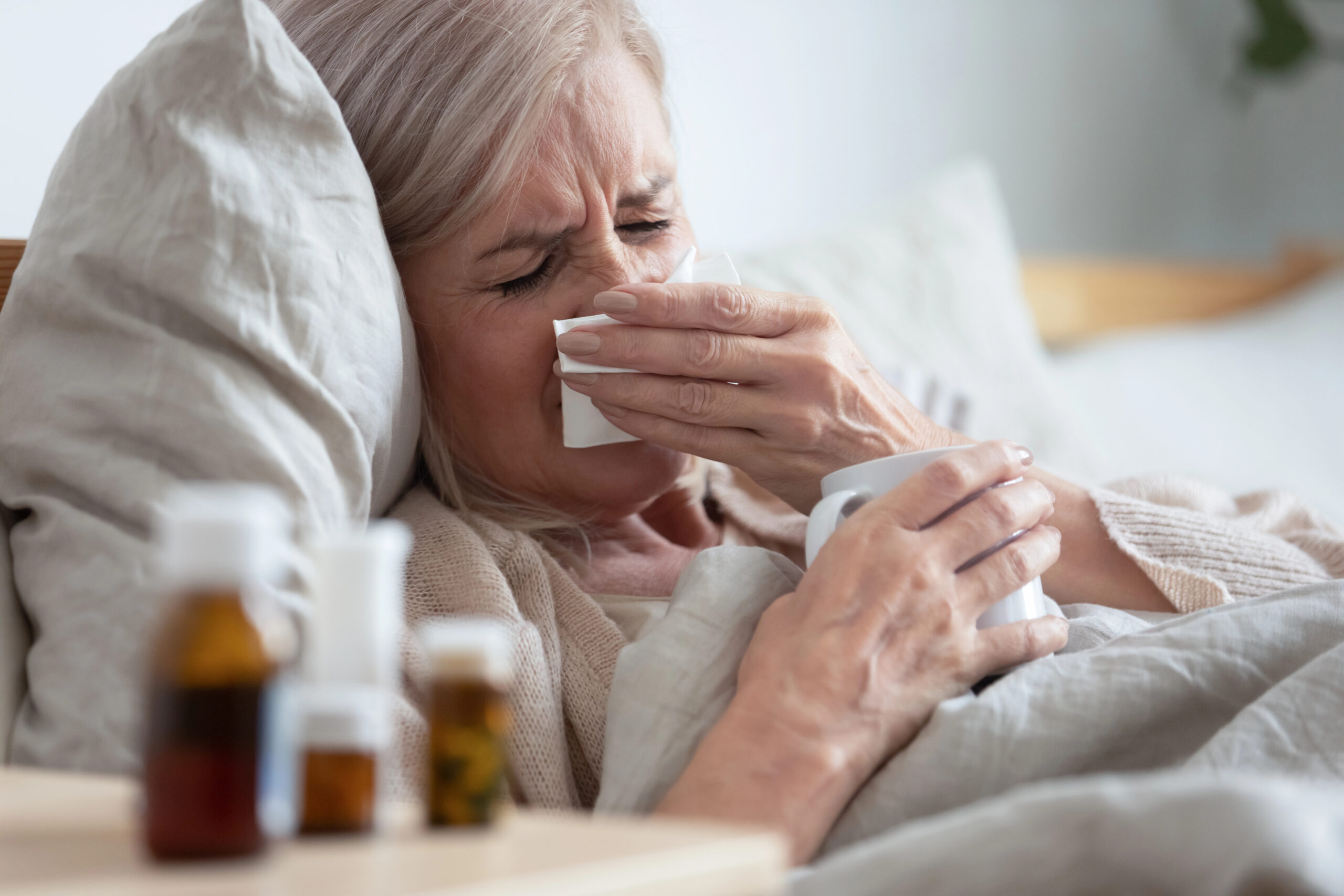Preparing for Influenza and Respiratory Virus Season

From early September through late March or early April, illnesses like influenza, COVID-19 and respiratory syncytial virus (RSV) are especially common. As the days get cooler and we spend more time indoors, these viruses find more opportunities to spread. Close contact and shared spaces make it easier for germs to pass from person to person, and cold, dry air can make it harder for our bodies to fight infections.
While many cases can be managed at home, these viruses can cause serious complications for young children, older adults and people living with chronic health conditions. Prepping your home and adopting healthy habits now can help you stay safer throughout the season.
Stay Up-to-Date on Vaccines
Getting vaccinated is the best way to lower your chances of catching or spreading seasonal viruses. Vaccines also reduce the risk of serious complications if you do get sick. Each year, health experts recommend:
- An annual flu shot, ideally by late October.
- Updated COVID-19 boosters when available.
- RSV protection for older adults and infants, where recommended.
Talk to your health care provider about which vaccines are right for you and your family. For people at higher risk, doctors may recommend other vaccines such as the pneumococcal vaccine, which helps protect against pneumonia and related infections. Remember, it usually takes about two weeks for vaccines to become fully effective, so plan ahead.
Consider Masking and Avoiding Crowds
While not necessary for everyone, taking precautions in crowded spaces can help reduce your risk, especially if you have a weakened immune system or are caring for someone at higher risk. Practical options include:
- Wearing a mask in crowded indoor spaces.
- Keeping your distance from people, especially if they are coughing or sneezing.
- Limiting time in or avoiding large gatherings during periods of high virus activity.
Stock Up on Essentials
Having supplies at home makes illness easier to manage and prevents unnecessary trips to the store when you aren’t feeling well. Helpful Items include:
- Pain and fever relievers like acetaminophen and ibuprofen.
- Cold medications such as decongestants, cough suppressants, cough syrups and throat lozenges.
- Reliable digital thermometer to check fevers accurately at home.
- Humidifier or saline nasal spray to ease congestion and breathing.
- Hygiene and cleaning supplies such as tissues, soap, hand sanitizer, disinfectant wipes and masks.
- Hydrating fluids like herbal teas, clear soups or broths and low-sugar electrolyte drinks.
Check expiration dates on all medications and supplies to ensure they’re safe and effective when you need them.
Practice Good Hand Hygiene
Proper handwashing is the most effective daily habit to prevent the spread of germs. To reduce the risk of infection, make sure to:
- Wash with soap and water for at least 20 seconds, especially after being in public, before preparing or eating meals and after using the bathroom.
- Always carry hand sanitizer with at least 60% alcohol for times when soap isn’t available.
- Avoid touching your face, eyes, nose or mouth with unwashed hands.
- Cough or sneeze into your elbow or a tissue.
Disinfect Surfaces
Viruses can live on surfaces for hours or even days. Regular cleaning with household disinfectants such as Lysol products, according to the manufacturer’s instructions, helps prevent the spread of viruses and bacteria. Focus on high-touch areas like:
- Door handles and light switches.
- Phones, keyboards and remote controls.
- Bathroom and kitchen surfaces.
- Children’s toys.
Support Your Immune System
Everyday healthy habits make your body better equipped to fight off illness and recover more quickly. Simple ways to support your immune system include:
- Getting at least 7 hours of sleep each night.
- Staying active with regular movement and exercise.
- Eating a balanced diet with plenty of fruits, vegetables, lean proteins and whole grains.
- Staying hydrated.
- Managing stress with activities that help you relax.
Improve Indoor Air Quality
Good ventilation helps reduce the buildup of germs in the air. At home, you can:
- Open windows or doors when the weather allows.
- Keep heating and cooling systems well-maintained with clean filters
- Use kitchen and bathroom exhaust fans to clear stale air.
- Consider a portable HEPA (High-Efficiency Particulate Air) filter for high-traffic rooms.
Looking Ahead
Flu and respiratory viruses are an inevitable part of the colder months, but with preparation, you can reduce your risk and manage illness more comfortably. Staying up-to-date on vaccines, practicing everyday prevention and making sure your home is stocked and comfortable can help keep you and your loved ones safe and supported throughout the season.
If you or a loved one develops severe symptoms, such as difficulty breathing, chest pain, a high fever that can’t be managed with medication, or sudden confusion, seek medical care right away.
If you enjoyed this article, you may also want to read:
